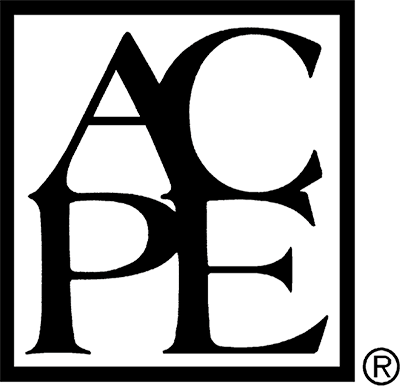SKU:
CEI-PHARMACIST-P-1673740800-WRITTEN-PH-4840
*This course meets the requirements for pharmacist prescribing of self-administered hormonal contraceptives as outlined in the New Jersey Board of Pharmacy regulation 13.39-14.7.
Course fee includes course materials and CPE credit submission to CPE Monitor.
Course is non-refundable.
Recording, capturing, or sharing any part of this presentation is strictly prohibited. This includes the use of AI note-taking tools, audio/video devices, or screen capture technology. Please help us protect the privacy of our speakers and the integrity of the educational content.
Copyright 2023, CEimpact. All Rights Reserved. Any reproduction of this course without express permission is strictly forbidden.
ACPE Details
Universal Activity Number (UAN): 0107-0000-23-022-H01-P
Application-based CPE Activity
Release Date: January 15, 2023
Planned Expiration Date: January 15, 2026
 CEImpact is accredited by the Accreditation Council for Pharmacy Education as a provider of continuing pharmacy education. Obtain CPE credit by completing the course, followed by the exam and evaluation (if applicable). Once successfully completed, your course will appear in your Completed Courses tab. Access your CPE statement of credit at www.MyCPEMonitor.net.
CEImpact is accredited by the Accreditation Council for Pharmacy Education as a provider of continuing pharmacy education. Obtain CPE credit by completing the course, followed by the exam and evaluation (if applicable). Once successfully completed, your course will appear in your Completed Courses tab. Access your CPE statement of credit at www.MyCPEMonitor.net.
¹CEImpact provides you with two (2) opportunities to complete the exam. The learner will not receive CPE credit after two failed attempts.
